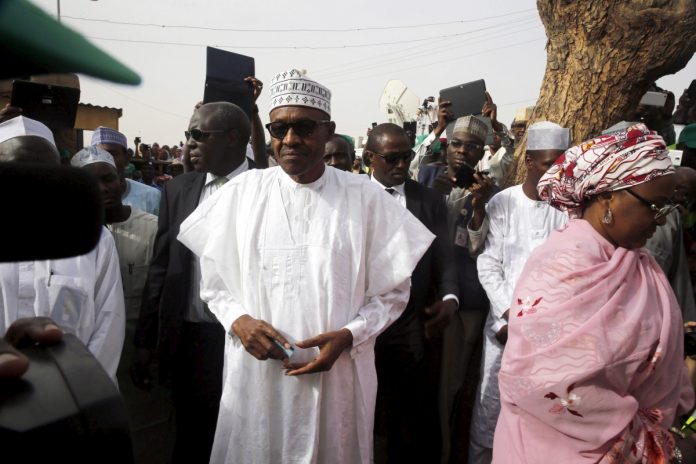Renaissance Capital, a leading emerging and frontier markets investment bank with operations in Russia, Eastern Europe, the Middlease, Asia and Africa, called Nigeria’s March 28 presidential election more than 24 hours before the country’s electoral commission declared 72-year-old Maj. Gen. Muhammadu Buhari (pictured above) the winner. Buhari’s All Progressives Congress (APC) won 15,424,921 votes and outgoing President Goodluck Jonathan’s People’s Democratic Party gained 12,853,162 votes.
Renaissance Capital sees Buhari as a likely reformist. “In addition to a crackdown on corruption and more effective handling of the Boko Haram insurgency, we expect austere fiscal policy to be imposed. Less corruption could lower the cost of doing business, particularly for small businesses, and a more secure Nigeria would allow isolated regions to re-engage with the rest of the economy,” the firm says in a research report. Yvonne Mhango, Renaissance Capital’s sub-Saharan economist, gives the following four takeaways from the Buhari win.
Potential upside. The vote for Buhari is a profoundly important moment in Nigeria and indeed in Africa’s history. Nigeria accounts for 1 in 6 Africans, and one-fifth of the continent’s GDP. This is Nigeria’s first election in which voters have supported a transition from one party to another. It is a testament to the building blocks of civil society that have emerged since the end of military rule. Investors have warmly greeted the same process in Pakistan in 2013 – in a similarly sized frontier market (by population).
Potential downside. There will be a period of adjustment as answers come about who will take over the finance ministry from Ngozi Okonjo-Iweala. The stalling of economic activity under a first-term president tends to be protracted, as it implies a mostly new cabinet and potential restructuring of ministries and departments. As government tends to be the biggest economic entity in developing economies, this transition implies economic activity will remain subdued for most of 2015. The fact that Buhari would head up a coalition may stall decision-making and add to pressure on fiscal resources, as he tries to reward the coalition’s constituents for their support. That said, we expect he would be constrained by limited fiscal resources.
Challenges. Buhari would come into office at a time when Nigeria’s fiscal and external buffers are at their lowest in several years. The drop of the FY15E budget oil price to $53.0 per barrel, from $77.5 per barrel in FY14, implies the federal government’s FY15E fiscal revenue is likely to drop by one third. The near-depleted excess crude account implies no access to savings to offset the decline in revenue. Buhari’s administration will thus have to work with very limited resources, which will significantly constrain its ability to fulfill its election promises. In Buhari’s previous stint in office, he administered austere policies; his administration cut spending by 15 percent, temporarily banned hiring, hiked interest rates, froze capital projects, and cut imports to reduce the balance of payments deficit. This time around, Buhari is heading up a coalition, which may weaken his ability to make difficult policy decisions.
What does a Buhari win mean for the macro? Buhari is known for his military past, rather than economic prowess, which makes his cabinet appointments crucial. It is not clear who these appointments might be, but Buhari has a number of heavyweight political allies who have governing experience at state levels, including outgoing governors Babatunde Fashola of Lagos State and Rotimi Amaechi of Rivers State, and also technocrats such as Ifueko Omoigui, a former tax boss and member of the President’s Economic Management Team, charged with tax reform. We expect a reformist administration that will impose austere policies. Limited fiscal resources imply upside risk to taxes. Non-financial companies may be affected by the reversal of tax waivers and import duty concessions. We have no reason to think a Buhari win puts Central Bank of Nigeria Governor Emefiele—who can only be removed by two-thirds of the Senate—at risk. Notably, when Buhari was last in power, his government broke ties with the IMF when asked to devalue the naira by 60 percent. However, the reforms that Buhari ended up implementing turned out to be as, or more rigorous, than those required by the IMF.













